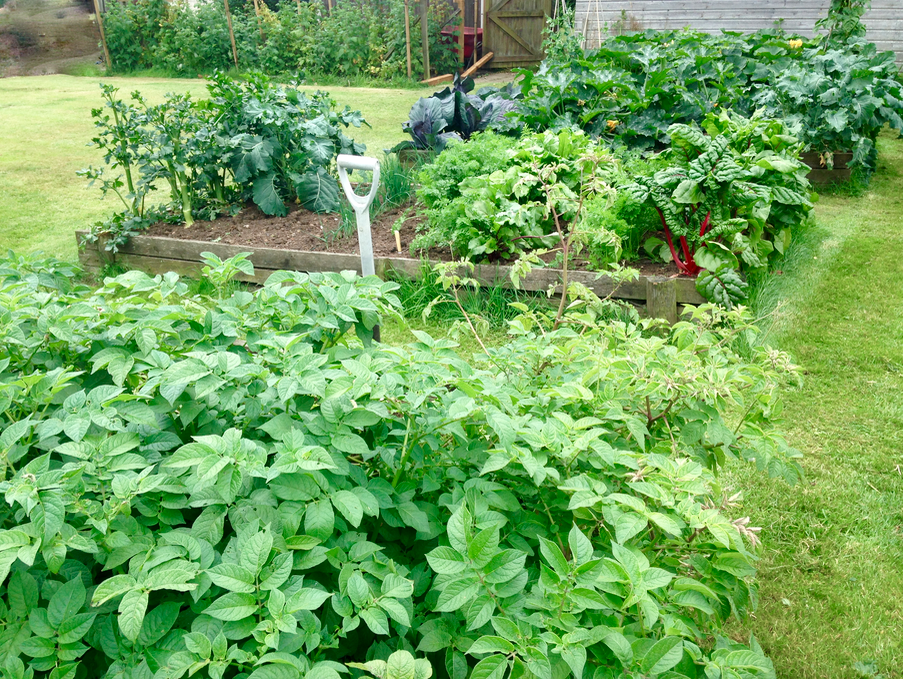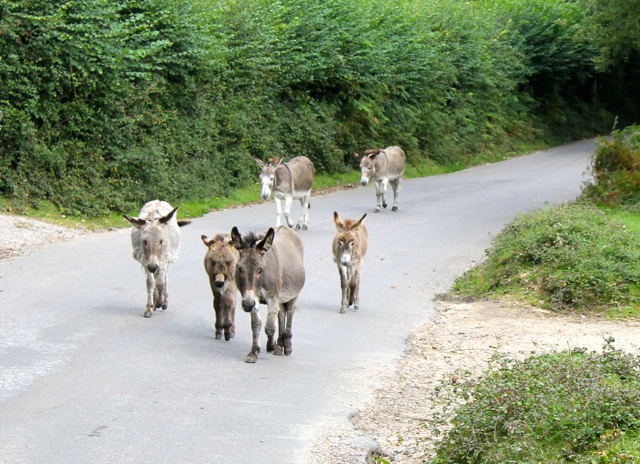
Forest dwellers in times past were self-sufficient. They grew vegetables and kept animals.
Of all the books I’ve read about the New Forest, it occurs to me that very few relate the New Forest from the feminine perspective or, indeed, tell women’s stories of living or growing up in this unique environment. It also makes me wonder, just how much her-story have we missed by only relating and recording his-story? One outstanding exception to this is perhaps the autobiography of Gilbert Smith, who provides an insight into the lifestyle of a Forest Keeper’s family at the turn of the twentieth century. It’s a book that, for me, has had many laugh-out-loud moments, as he describes his childhood growing up on the New Forest. Although it was a hard life, he is grateful that it was one filled with the things money can’t buy – love, space and freedom – much of which was due to his mother. He describes her in tones of immense admiration and, by his account, was a woman of widespread ability, able to add many creature comforts into their otherwise thrifty lifestyle. (For instance, she would stuff pillows with thistledown and lavender for the children’s beds.) He describes her as a ‘true Forester’ with a marvellous sense of humour, that was quite wicked at times. Their existence was fairly isolated with the nearest neighbour being over a mile away, which meant that they had to be self-reliant. (Gilbert Smith never had a day outside the New Forest until after he’d left school.) The Forest at that time had no electricity, no gas, no telephone, and travel was on unmade dirt tracks either on foot, bicycle, horseback or in a horse-drawn waggon or cart. When her children were young, Smith’s mother pushed them about in a wheelbarrow, as a pram would never have survived the rough tracks.
Tough – little donkeys
It was a very physically demanding existence, without the benefit of the modern technology or labour-saving devices that we take for granted today. All their food was made from ingredients (there was no such thing as processed or convenience food available) and Smith’s mother is described as a ‘magician’ able to conjure up appetising food, with just primitive cooking facilities. Rabbits, caught by the children, sometimes supplemented the protein requirement of the family diet; this, it must be remembered, was before the introduction of myxomatosis to control the rabbit population. Smith’s father, who was a Forest Keeper, was allowed to take some for the pot, but rabbits were generally reserved for the “licensees” who paid to shoot in the Forest. He never seemed to realise just how prolific his children’s hunting was, as his wife never let on and bartered the excess bunnies at Ringwood market, where she also sold any eggs and butter that could be spared. The vegetables they ate came from their own garden plot, and Smith’s mother would make her own chutney and pickles from the surplus. When he was a child Gilbert Smith and his brothers and sisters, would help their mother collect “morning’s wood” for the fire. Mother would push the wheelbarrow and, when it was filled with fallen branches and dried sticks, the children would pull in front on ropes – ‘just like little donkeys’. It was a tough existence.
Survival lessons
As well as the absence of convenience food or labour-saving technology, at this time people were also without the benefit of a National Health Service, and the nearest doctor – who was very expensive – lived many miles away. Any ailments had to be treated with home-remedies made from the plants and herbs growing around their holding, or from vinegar, cider and honey on the comb. Luckily, Smith’s mother was a gifted naturalist, who was herself descended from a line of Forest Keepers, and passed her knowledge on to her children. Smith describes how she impressed upon them all the appropriate “do’s” and an awful lot of “don’ts”. None of these, however, are listed in Gilbert Smith’s book and we can only hope that perhaps they survive in the generations that followed him. Reading this memoir as well as being thoroughly entertaining was, nevertheless, thought provoking. It made me wonder, that if our children were to write about their own upbringing, what sort of memories would they share about us? And, if we ever had to be self-sufficient like the Smith family, just how would we survive?

Gilbert Smith describes himself, and his brothers and sisters, as being like ‘little donkeys’.


You must be logged in to post a comment.